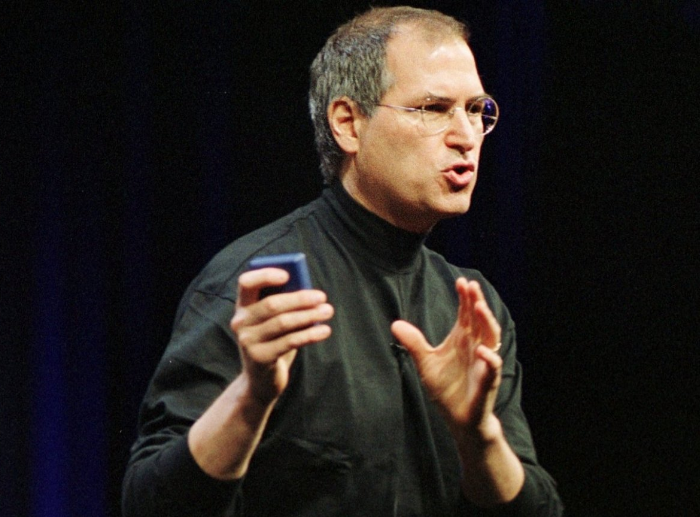"You know Steve, he has his own agenda," Sony's CEO Nobuyuki Idei explained to Red Herring editor Tony Perkins.
索尼公司的CEO出井伸之在接受《红绯鱼》杂志的编辑安东尼·帕金斯采访时说:“你知道史蒂夫,他有自己的打算。
"Although he is a genius, he doesn't share everything with you.
虽然他是个天才,但是他不愿意和别人分享一切。
This is a difficult person to work with if you are a big company.... It is a nightmare."
大公司很难与他合作....那简直是一场噩梦。”
Howard Stringer, then head of Sony North America, added about Jobs:
索尼公司北美区总裁霍华德·斯金格补充道:
"Trying to get together would frankly be a waste of time."
“说实话,寻求与他合作简直就是在浪费时间。”

Instead Sony joined with Universal to create a subscription service called Pressplay.
后来,索尼公司和环球音乐集团合作,创建了一个叫做Pressplay的订阅服务。
Meanwhile, AOL Time Warner, Bertelsmann, and EMI teamed up with RealNetworks to create MusicNet.
同时,AOL时代华纳、贝塔斯曼及百代唱片和里尔网络合作,推出了MusicNet。
Neither would license its songs to the rival service, so each offered only about half the music available.
这两个平台都不会把自己的歌曲授权给对方,所以它们各自拥有一半的资源。
Both were subscription services that allowed customers to stream songs but not keep them,
而且它们仅为用户提供播放功能,不提供下载,
so you lost access to them if your subscription lapsed.
所以如果你的订阅过期了,就无法再访问。
They had complicated restrictions and clunky interfaces.
另外,它们还有诸多复杂的限制条款和笨拙的界面。
Indeed they would earn the dubious distinction of becoming number nine on PC World's list of "the 25 worst tech products of all time."
事实上,这两款软件因为“不分伯仲”,在《计算机世界》杂志评选出来的“历史上最差的25款科技产品”中并列第九。
The magazine declared, "The services' stunningly brain-dead features showed that the record companies still didn't get it."
杂志上这样写道:“这些产品惊人的愚蠢功能说明唱片公司仍然没有理解用户需求。”


